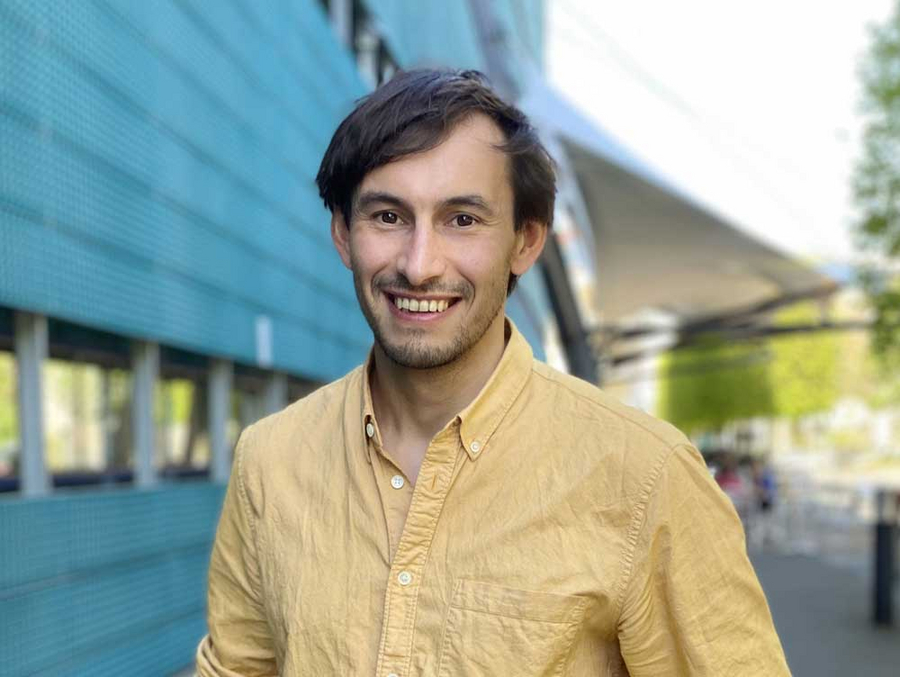
Jesse Veenvliet © MPI-CBG
A new research group leader started at the MPI-CBG in May! Jesse Veenvliet will probe the information flows that sculpt a mammalian embryo using embryo-like structures as a proxy, to understand how form, forces and fate are coordinated to reproducibly produce a normal fetus. To this end, Jesse and his team coax pluripotent stem cells to form embryo-like structures – or stembryos – in a dish. This approach allows for direct observation and active modulation of the developmental processes that are normally obscured from view due to the development of an embryo in a uterus.
Jesse says: “Stembryos are easy to access, track, manipulate, and scale, and thus excellently suited to provide an integrative understanding how biochemical and biophysical inputs act in concert during mammalian embryo morphogenesis, a process that has fascinated me ever since I started looking at embryos. However, I am not a biophysicist, so I quickly realized that to answer my all-time favorite questions I needed a collaborative environment that had a lot of relevant expertise in this direction. The institute and the whole campus here in Dresden, with the Cluster of Excellence Physics of Life (PoL) at the TU Dresden for example, can offer this. During my first visit I was so impressed how it breathes cross-disciplinary collaboration! It was therefore very clear to me from the beginning that this was the institute where I wanted to go.”
Welcome to the institute, Jesse!
Jesse started studying Medicine at the University of Nijmegen in the Netherlands. After a research internship, he decided to pursue a career in science and went to the University of Utrecht to obtain a Master’s degree in Experimental and Clinical Neuroscience. There, he started his PhD in Molecular Neuroscience and finished it at the University of Amsterdam, due to the lab moving there. For his postdoctoral research, Jesse Veenvliet went to the Max Planck Institute for Molecular Genetics in Berlin, before accepting a research group leader position at the MPI-CBG.